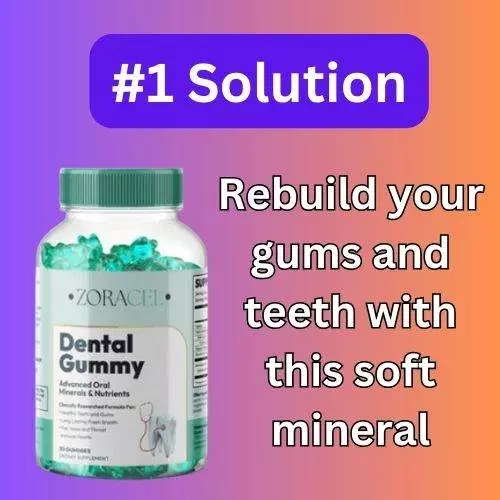
- The Causes of Bad Breath: Understanding the Science
- The Importance of Oral Hygiene in Fighting Bad Breath
- The Benefits of Chewing Gum for Oral Health
- How Chewing Gum Works to Combat Bad Breath
- The Different Types of Chewing Gum Available
- Tips for Choosing the Right Chewing Gum for Your Needs
- How Often and When to Chew Gum for Maximum Effectiveness
- Other Strategies for Preventing Bad Breath
- The Role of Diet and Lifestyle in Bad Breath Prevention
- Embracing the Power of Chewing Gum for Fresh Breath
Bad breath, also known as halitosis, is a common problem that affects many people. It can be embarrassing and have a negative impact on one’s confidence and social interactions. Fortunately, there are simple and effective solutions to combat bad breath, and one of them is chewing gum.
The Causes of Bad Breath: Understanding the Science
Bad breath is primarily caused by bacteria in the mouth. These bacteria break down food particles and release foul-smelling gases as a byproduct. Certain foods and drinks, such as garlic, onions, coffee, and alcohol, can also contribute to bad breath. Understanding the causes of bad breath can help in preventing it.
The Importance of Oral Hygiene in Fighting Bad Breath
Maintaining good oral hygiene is crucial in preventing bad breath. Regular brushing and flossing help remove food particles and plaque from the teeth, reducing the amount of bacteria in the mouth. Tongue scraping is also an important part of oral hygiene as bacteria can accumulate on the tongue. Additionally, visiting the dentist regularly for professional cleanings and check-ups can help in maintaining good oral health.
The Benefits of Chewing Gum for Oral Health
Chewing gum has several benefits for oral health. Firstly, it helps stimulate saliva production. Saliva plays a crucial role in neutralizing acids in the mouth and washing away bacteria and food particles. Chewing gum can also help remove food particles from hard-to-reach areas of the teeth. Furthermore, chewing gum can help freshen breath temporarily by masking odors.
How Chewing Gum Works to Combat Bad Breath
Chewing gum increases saliva flow, which helps wash away bacteria and food particles that cause bad breath. Saliva contains enzymes that break down food particles and neutralize acids in the mouth. By increasing saliva production through chewing gum, one can effectively combat bad breath.
The Different Types of Chewing Gum Available
When choosing chewing gum for oral health, it is best to opt for sugar-free gum. Sugar-free gum does not contribute to tooth decay and is a better option for overall oral health. Some sugar-free gums also contain xylitol, a natural sweetener that has been shown to help prevent tooth decay. Additionally, there are gum options available with added flavors and benefits, such as gum that promotes fresh breath or gum that helps whiten teeth.
Tips for Choosing the Right Chewing Gum for Your Needs
When selecting chewing gum, it is important to look for the American Dental Association (ADA) seal of approval. This seal ensures that the gum has met certain standards for safety and effectiveness. It is also advisable to choose gum with natural flavors and ingredients, as artificial additives can have negative effects on oral health. Lastly, consider your specific oral health needs when choosing gum. If you are prone to tooth decay, opt for gum with xylitol or other ingredients that promote dental health.
How Often and When to Chew Gum for Maximum Effectiveness
Chewing gum after meals can be particularly effective in preventing bad breath. It helps stimulate saliva flow and wash away bacteria and food particles that may be lingering in the mouth. Chewing gum for about 20 minutes after eating is recommended to maximize its effectiveness. However, it is important to chew gum in moderation as excessive chewing can lead to jaw problems.
Other Strategies for Preventing Bad Breath
In addition to chewing gum, there are other strategies that can help prevent bad breath. Drinking plenty of water throughout the day helps prevent dry mouth, which can contribute to bad breath. Avoiding foods and drinks that are known to cause bad breath, such as garlic and coffee, can also be helpful. Using mouthwash can provide temporary relief from bad breath by killing bacteria in the mouth.
The Role of Diet and Lifestyle in Bad Breath Prevention
Maintaining a balanced diet is essential for preventing bad breath. Eating a variety of fruits, vegetables, and whole grains helps promote good oral health. Avoiding smoking and excessive alcohol consumption can also contribute to fresh breath. Additionally, maintaining good overall health through regular exercise and stress management can have a positive impact on oral health.
Embracing the Power of Chewing Gum for Fresh Breath
In conclusion, bad breath is a common problem that can be embarrassing and affect one’s confidence. Chewing gum is a simple and effective solution to combat bad breath. By understanding the causes of bad breath, maintaining good oral hygiene, and choosing the right gum, one can effectively prevent bad breath and maintain good oral health. Embracing good oral hygiene habits and a healthy lifestyle can also contribute to fresh breath. So, next time you’re looking for a quick fix for bad breath, reach for a piece of sugar-free gum and enjoy the benefits it brings.









